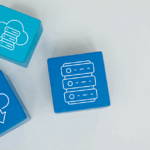Contact center employees often face high levels of stress due to repetitive tasks, demanding customers, and strict performance metrics. Burnout affects employees’ well-being and leads to decreased productivity, higher turnover rates, and lower customer satisfaction. Implementing proactive strategies can create a healthier work environment and improve retention. Below are key approaches to preventing contact center burnout:
1. Prioritize Employee Well-Being
Flexible Scheduling
- Offer flexible shift options to accommodate employees’ personal needs.
- Implement rotating schedules to avoid burnout from working peak hours continuously.
- Allow employees to swap shifts when needed to manage their work-life balance better.
Adequate Breaks
- Enforce regular, meaningful breaks away from screens and phones.
- Provide relaxation spaces where employees can recharge.
- Encourage short mindfulness or stretching exercises to relieve tension.
Workload Management
- Avoid excessive workloads by balancing call volume among agents.
- Implement a fair system for handling difficult or escalated calls.
- Automate repetitive tasks to reduce unnecessary workload.
2. Provide Adequate Training and Resources
Comprehensive Onboarding
- Ensure employees are well-trained in customer service skills and stress management techniques.
- Offer simulations and real-world practice scenarios to build confidence.
- Provide clear guidelines for handling complex or challenging customer interactions.
Continuous Learning and Development
- Offer refresher courses on communication, de-escalation, and problem-solving.
- Provide career growth opportunities to keep employees motivated.
- Encourage cross-training to expand skill sets and reduce monotony.
Technology Support
- Equip employees with user-friendly and efficient customer service tools.
- Implement AI-driven solutions to assist in answering common customer inquiries.
- Reduce downtime by ensuring software and hardware function optimally.
3. Foster a Positive Work Environment
Supportive Leadership
- Train managers to be empathetic and approachable.
- Encourage open-door policies where employees feel comfortable sharing concerns.
- Provide coaching and mentorship programs to support career growth.
Team Collaboration
- Promote peer support by implementing buddy systems or mentoring programs.
- Organize team-building activities to strengthen relationships and morale.
- Encourage a collaborative rather than competitive work culture.
Engagement Activities
- Organize fun challenges, competitions, or themed workdays.
- Celebrate team and individual achievements with public recognition.
- Involve employees in decision-making to enhance their sense of ownership.
4. Recognize and Reward Employees
Incentive Programs
- Provide performance-based bonuses, gift cards, or paid time off.
- Recognize top performers in company newsletters or meetings.
- Offer spot rewards for exceptional customer service or teamwork.
Appreciation and Acknowledgment
- Regularly thank employees for their hard work.
- Implement “Employee of the Month” programs.
- Conduct regular appreciation events, such as luncheons or outings.
5. Encourage Open Communication
Feedback Loops
- Hold regular meetings where employees can voice concerns and suggestions.
- Use anonymous surveys to gauge employee satisfaction and stress levels.
- Actively implement employee feedback into workplace policies.
One-on-One Check-Ins
- Conduct individual meetings to discuss workload, stress levels, and career aspirations.
- Offer personalized support to employees facing difficulties.
Anonymous Communication Channels
- Provide tools for confidential reporting of concerns.
- Encourage an environment of psychological safety where employees can speak up without fear of retaliation.
6. Monitor and Address Stress Indicators
Employee Surveys and Assessments
- Conduct regular surveys to measure stress, engagement, and satisfaction levels.
- Use data-driven insights to identify common burnout triggers.
Mental Health Support
- Offer access to counseling services or Employee Assistance Programs (EAPs).
- Provide workshops on mindfulness, resilience, and work-life balance.
- Destigmatize mental health discussions within the workplace.
Real-Time Monitoring and Proactive Intervention
- Identify early signs of burnout (e.g., increased absenteeism, low motivation, declining performance).
- Intervene with support programs, modified workloads, or temporary role adjustments.
7. Set Realistic Expectations
Balanced Performance Metrics
- Focus on both quality and efficiency rather than just call volume.
- Avoid excessive reliance on Average Handling Time (AHT) as a key performance indicator.
- Encourage personalized customer interactions over rigid scripts
Clear and Achievable Goals
- Set realistic targets that align with employee capabilities.
- Regularly review and adjust goals to match evolving business needs.
- Celebrate incremental progress and improvement.
8. Promote Work-Life Balance
Remote or Hybrid Work Options
- If possible, allow employees to work remotely for part of the week.
- Provide resources to ensure remote workers have a comfortable setup.
Encouraging Paid Time Off
- Ensure employees take their allotted vacation time.
- Implement “mental health days” to encourage personal well-being.
- Discourage excessive overtime to prevent chronic stress.
Wellness Programs
- Offer gym memberships, wellness stipends, or access to fitness classes.
- Provide healthy snacks and hydration stations in the workplace.
- Implement mindfulness and relaxation sessions.
Conclusion
Preventing contact center burnout requires a combination of structured policies, supportive leadership, and a culture that values employee well-being. By implementing these strategies, organizations can foster a healthier, more engaged workforce, ultimately improving customer service quality and business success. Investing in employees’ well-being not only enhances retention but also builds a more resilient and motivated team.
TrainingPros can help ensure your contact center employees are knowledgeable and up-to-date on product knowledge. We offer product training at the tim of implementation, upgrade, or anytime.
Ready to take Avaya classes with TrainingPros?
TrainingPros is an award-winning training provider offering training on Avaya products and services for over twenty years. We employ highly skilled, versatile, expert trainers who are true professionals and experts on Avaya products and solutions.
We strive for excellence, and feedback from our students and instructors is key to our growth and success. Learner engagement and satisfaction are the most critical measures of the effectiveness of virtual training. TrainingPros surveys all our participants and evaluates feedback to drive continuous improvement in our training offerings. Our results on client satisfaction speak for themselves, with a 4.6 out of 5 customer satisfaction score. We employ many of the above virtual training best practices to bring our learners the best training experience possible. Visit us to enroll in an Avaya training class or contact us to schedule a custom class for your company today. Contact us at Avaya.Training@Trainingpros.com
- 0share
- LinkedIn0
- Twitter0
- Facebook0
- Love This0












